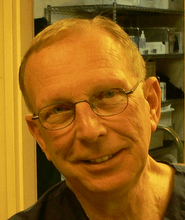 “Galileo keeps harping on how things happen, whereas his adversaries had a complete theory as to why things happen…. Galileo insists upon ‘irreducible and stubborn facts,’… his opponent, brings forward reason.” ~ A.N. Whitehead
“Galileo keeps harping on how things happen, whereas his adversaries had a complete theory as to why things happen…. Galileo insists upon ‘irreducible and stubborn facts,’… his opponent, brings forward reason.” ~ A.N. Whitehead As Bertrand Russell emphasized, science was nothing more than the consistent application of common sense. In Galileo’s instance, that was the eye of sense. The clash is between the eye of sense and the eye of reason, between empiricism and rationalism. Science is anti-rationalism? Yes, it comes to “irreducible and stubborn facts!”
The analogy of eyes as being the senses of these clashes reaches back to Saint Bonaventure (1221-1274) over three hundred years before Galileo (1564-1642). St. Bonaventure writes of three modes or “three eyes” to obtain knowledge, a type of illumination: lumen exterius, the eye of flesh, giving us knowledge of sense objects; lumen interius, the eye of mind or eye of reason, giving knowledge of philosophical truths; and lumen superius, the eye of contemplation, giving knowledge of the transcendent realm. The eye of flesh is also referred to as lumen inferius, inferior illumination, a statement perhaps leading to the later ignoring of “irreducible and stubborn facts.”
The idea of eyes of flesh, mind, and contemplation exist in every major tradition of philosophy, psychology, and religion. In Eastern wisdom traditions one hears of opening of the third eye, and a manners of doing so are the wisdom of the tradition.
Today, an example of this is the over-dependence on such as computer simulations, basing conclusions on the model rather than reality. The error of applying the wrong eye, remains unfortunately common, and with the ascendancy of science, it tends toward the same error—except in reverse. If they can’t see or measure it, it doesn’t exist. The eye of contemplation no longer exists. Is this scientism’s way of saying, “God is dead.”?
-----------------------------------
St. Bonaventure, Doctor Seraphicus, a Franciscan, was awarded his Masters, the medieval equivalent of a Doctorate, from the University of Paris, at the same time as St. Thomas Aquinas, a Dominican. Both are Doctors of the Church. Saints are many; Doctors of the Church few and ultra select. In their few numbers appear some of the most extra-ordinary humans mankind has produced.


No comments:
Post a Comment